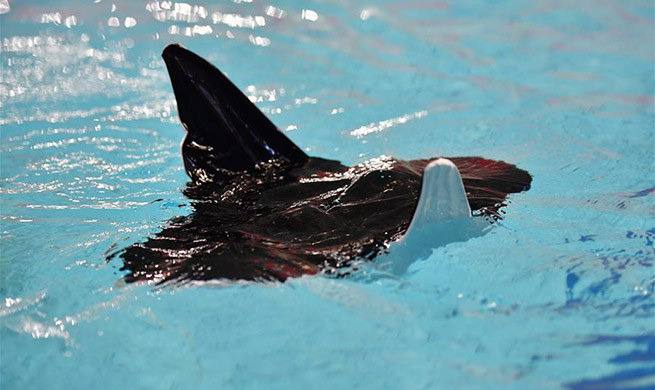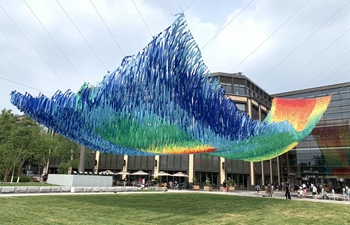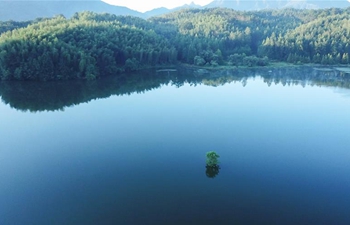JERUSALEM, Aug. 6 (Xinhua) -- Israeli researchers have developed a new technology to purify water from the toxic substance formaldehyde, the Israel Institute of Technology (Technion) reported on Tuesday.
Formaldehyde, whose chemical formula is CH2O, is a carcinogen that can enter the body through breathing, eating and drinking, and is considered one of the most problematic indoor pollutants.
The new study, published on Chemical Engineering Journal, focused on the existence of formaldehyde in water, which is a result of industrial processes.
Formaldehyde is the basis for glue production and is therefore very common in the wood, paper, textile and other industries. It accumulates in the water generated in the production process.
The flow of the formaldehyde wastewater into the ground or water reservoirs is prohibited, and therefore, great efforts are being made to find ways of decomposing the substance.
Since removing it from the water is very expensive, some companies simply keep the barrels of contaminated water out until a solution is found.
The new Israeli technology is based on a montmorillonite clay -- a natural mineral with a very large surface area, which gives it a rare adsorption capacity.
The other major ingredient in the new technology is a formaldehyde-linked bacterium. Such bacteria is developed in the Negev Desert in southern Israel, following many years of use of formaldehyde for soil disinfection.
This use has led to the development of formaldehyde-resistant bacteria, which can decompose the dangerous substance.
However, the high formaldehyde level in the industrial wastewater kills the bacteria, so a protection system is needed to allow the bacteria to survive and decompose the unwanted substance.
The new device is based on processed clay, with a positive electric charge, which annexes the formaldehyde and reduces its concentration.
The unit is pre-bonded with bacteria that decompose the material, and after each round of decomposition of formaldehyde, the unit cleans itself for another round.
The researchers say the development may also be relevant to other uses, such as adsorption and decomposition of pesticides washed away by the rain that threaten to contaminate groundwater.

















